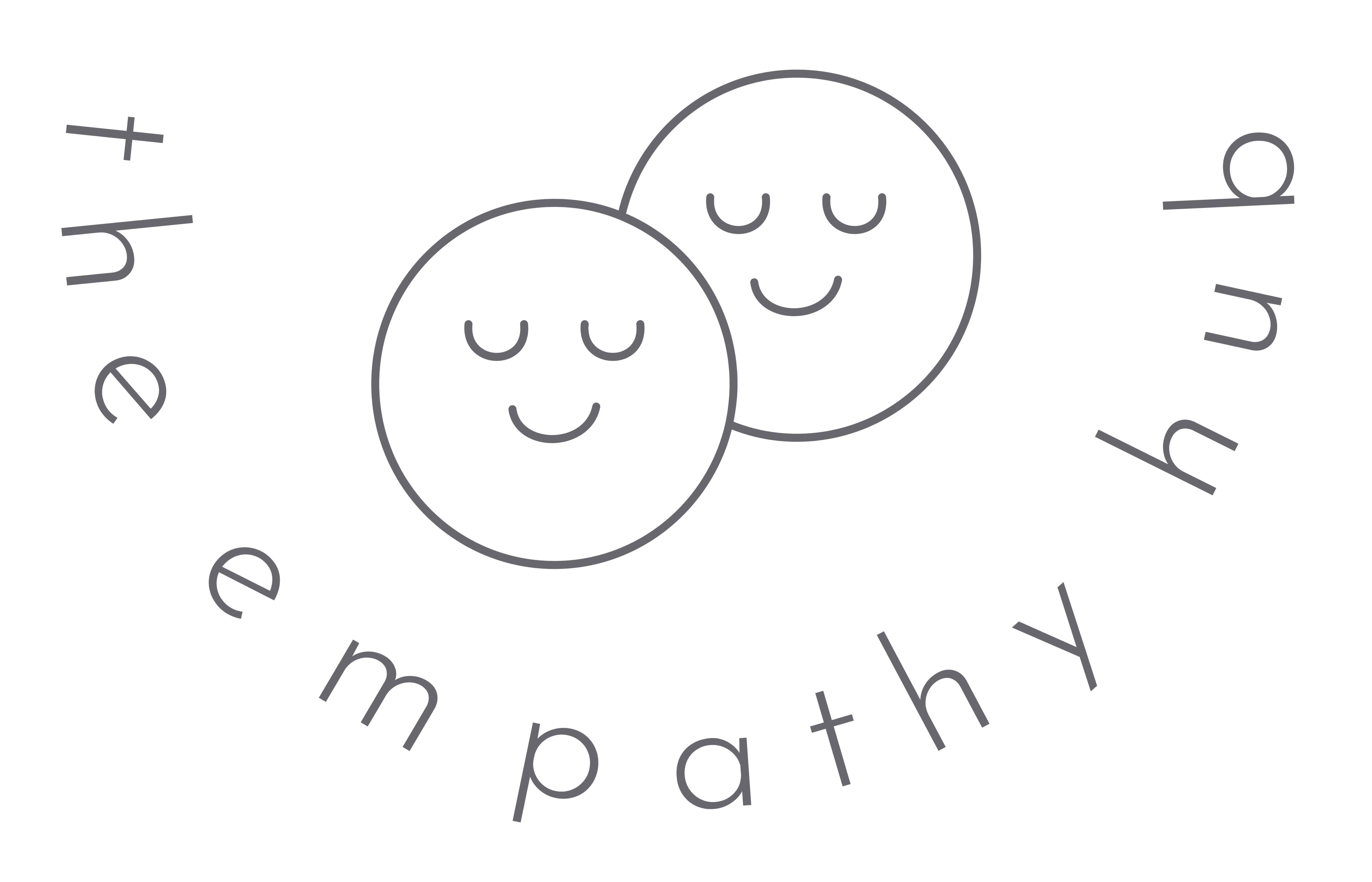“I don’t subscribe to the concept of work-life balance.”
The statement, delivered by Kyle (they/them), my spouse, temporarily halted the conversation. We were sitting at lunch with our neighbours, a couple who both worked in epidemiology, not long after they’d been the first to identify the Omicron strain of COVID-19.
Our neighbours had just been discussing how they struggled for work-life balance, considering their high-stress job and three young kids. Kyle’s claim just… made no sense to them.
It made no sense to me either. I’d never heard Kyle express this and it seemed counter to what I know about their lifestyle first-hand. They constantly strive for balance in everything. Of course, they hadn’t finished their thought, but had waited for a response for dramatic effect.
Cheryl bit. “What do you mean? Do you think it’s okay for work to take over everything?”
“No,” Kyle said. “My problem with the concept of work-life balance is that it presumes that what you do for the majority of every day is separate from your real life.
“But actualised people are integrated. They’re the same person at work as they are at home, with their colleagues as they are with their family and friends.”
It took me some time to process this concept. It seemed like semantics. But in the time since, it has become the insight I prioritise most for healthy living.
Do I, Personally, Need Work-Life Balance?

At work, I do what I love.
Actually, let me rephrase that. At work, I love what I do. And yes, there is a difference.
I love writing and I’m passionate about mental health. I write about mental health for work, I enjoy it, and I love that I get to do it every day.
Which is why I tend to forget about work-life balance. I don’t work so hard that it comes at the expense of my relationships. So why should I disrupt the work I love doing to do something else?
But this is where the distinction between doing what I love and loving what I do becomes relevant. While I love what I do, in a perfect world, in which people didn’t struggle to get help for mental health issues and I didn’t need to make money, I wouldn’t be doing this.
Instead, I would spend all my time doing what I love.
I love writing fiction. I love making music. I love taking my dog to the park and practising mindfulness techniques to connect with nature. I love working with my husband on projects and hiking with friends.
I would do all of these things whether or not anyone read my books or listened to my songs. Even if they brought me no closer to any of my goals.
The interesting thing is that I do all of the things I love… only to an extent. Only when everything else is close to perfect. Only when I’m succeeding at managing feelings of guilt and obligation.
Why do I Avoid Doing What I Love?

I’m not going to downplay my achievements. I’ve written two novels, one of which I published.
I’ve learnt to play guitar, to finger drum on a Midi keyboard, and to use software instruments to create complete songs without involving other musicians.
Plus, I’ve filled two sketchbooks with drawings (which I think are pretty good for an amateur).
But this only tells some of the story.
Here’s where it breaks down.
I didn’t market my published novel nearly as much as I needed to, and my other manuscript is sitting unedited on my laptop. I have written 200,000 words of a manuscript I haven’t touched in 3 years.
My guitar skills are rusty at best having barely played in years. My mind is bursting with song ideas I haven’t gotten around to, and I can’t remember when I last sketched.
I love doing all of these things and they energise me, rather than draining me. So why am I so inconsistent with them? And why do I sometimes avoid doing them at all?
Modern Guilt
A while ago, I read an article about making music*. The author mentioned that, in the past, everyone made music. They sat around a fire and banged on drums, sang, strummed a guitar, clapped, and contributed however they wanted to.
Only over the past couple hundred years did humans start valuing the product more than the process. Only recently did we consider making music pointless unless we composed complete songs, released the finished package, and distributed it to a wide audience.
This resonated with me because it speaks to why I procrastinate doing what I love. I imagine hundreds of millions of others can relate (including you).
In the modern world, we feel guilty about putting effort into things which don’t change lives or make money, no matter how much happiness they bring.
Modern society tells us that we’re only deserving of happiness if it’s connected to pragmatic goals. This mindset works, to some extent, towards keeping societal progress on track. Hustling in your career and to keep your family healthy are efforts considered worthy.
On the flipside, personal pursuits are considered an indulgence. ‘Pastime’, the word we often use to describe these pursuits, shows just how little value we give them.
This perspective has infected so many people that we no longer dream of retirement. We know that when we finally get the free time, we’ll have no idea how to use it.
Work-life balance goes some way towards addressing the negative effects of this mindset.
*I’ve tried finding the article but unfortunately I can’t remember who wrote it, what it was called, or the website that published it.
Work-Life Balance

When I’m rocking work-life balance, a weekday looks something like this:
I wake up early and spend an hour cuddling with Kyle and our mini-schnauzer Banksy in bed. I drink a cup of coffee and do the daily crossword. I have a smoothie for breakfast, then sit down and schedule my day accordingly:
- 5 hours writing for clients (incorporating short breaks)
- Lunch
- 2 hours operational work for The Empathy Hub
- Cook dinner
- Park with Banksy
- Gym
I follow the schedule, adapting for unexpected developments. Then I have dinner and relax with Kyle and wind down for the evening.
If you had told me I could one day live this life when I was struggling with ADHD, depression, low self-confidence, and internalised homophobia, I would have rolled my eyes in the knowledge I would never be so lucky.
But now, it’s clear that something is missing from that ‘balanced’ day.
There’s a lot of what we call ‘life’ there, but no time is set aside for my passion projects.
Just Plain Balance

How can work-life balance fall short, even for someone who loves what they do? The answer: there’s a lack of integration.
I’ll explain the concept in a moment, but first let me give you an example of what my day looks like when integrated:
I start out in pretty much the same way, as I love my morning routine. My ‘work’ schedule, however, looks different, with slots for writing poetry and fiction, and making music, included.
I might include a two hour slot for lunch with a friend. Once in a while, I might spend the whole morning rock-climbing.
The night hours are also different. I might spend an hour or two writing, doing admin, making music, or collaborating with Kyle on a project.
To an outsider, it could look like I have no work-life balance. And maybe that’s true. But I have something more valuable: a balanced life.
Integration

Work-life balance implies a level of compartmentalisation. Balance – or integration – is about considering everything you do as an essential part of the same life.
For that reason, you approach every task with the same commitment.
When you work on a passion project during a weekday, you don’t treat it like a guilty pleasure or pack it into a spare half hour. When you do an hour of work at night, you don’t do it begrudgingly or with the simple intent of getting it over with.
Now, I know what you’re thinking: this guy’s living in fantasyland. And yes, you’re right. The above is extremely aspirational and I’ve learnt from harsh experience that the desire to live that way is not enough.
In practice, integration is something I will spend my whole life working towards.
So, is there even a point in trying?
The good news is that the journey towards an integrated life is rooted in mindfulness. And, unlike most aspirational worldviews, mindfulness is something you can start practising right now.
It doesn’t require hundreds an understanding of complex philosophy*.
Mindfulness only works when approached with simplicity. Eastern mindfulness is based in ideas and tales that often appear underwhelming to those hearing them for the first time.
For this reason, you can benefit from mindfulness practice whether or not you understand it. Even if you haven’t yet embraced the intentionality behind it.
*That’s not to say I don’t love complex philosophy or downplay its relevance.
Mindfulness and Integration
What is mindfulness?
Mindfulness is being present. That’s all you need to know in order to start.
But I’ll provide a bit more context to understand Kyle’s approach to balance and integration.
One Thing at a Time
A major axiom of mindfulness is that every moment is as real as any other. You’re not living life more fully just because you’re at home rather than at work (or vice versa). An important practice in line with this is to do one thing at a time.
Doing one thing at a time sounds simple, but we all know that it’s not. There are so many things calling out for our attention that no one is able to immerse themselves in only one thing all of the time.
However, taking this on as a goal is a great start when looking for balance and integration. It can make an immediate difference
Consider what happens when you’ve got work to do after hours. Some common feelings are frustration, resentment, disappointment, and guilt. Some common thoughts are that you’re missing out, that you need to get this over with, that you’re letting down the people you love.
You rush to get work over with so you can go back to your life. But you don’t finish the job any more quickly. Rather, your efficiency decreases and you’re left feeling drained. You may even end up doing half a job.
Choosing to do the work mindfully helps you accept the reality for however long it takes. You don’t obsess about what you’d rather be doing, and you no longer feel so bad.
What About Those of Us Who… Don’t Love Their Jobs?
I’m extremely lucky. It’s a rare chain of events that led me to a life where I get to love what I do. Events I would not willingly choose to go through again. And while I have my fair share of difficult days, and certain responsibilities feel like punishments, balance never seems too far from reach.
What if you don’t love your job? What if you hate it? Is integration truly possible?
The good news is that the answer is yes. The other good news is that it isn’t as hard as you think.
Let’s go back to the beginning. I’ve strayed somewhat from what Kyle said that day with our neighbours:
Happy people are integrated. They’re the same person at work as they are at home, with their colleagues as they are with their family and friends.
Chances are that you’re never going to enjoy bringing work home with you. It might always be a struggle to appreciate having to work after hours.
But you can change how you approach your work hours.
Bringing Life to Work

Because we’ve been brought up in a world which idealises work-life separation, it’s natural to treat your home and the office as two completely different universes.
You never show your work friends who you truly are, instead relating to them through a pragmatic lens, or even as a competitor or threat.
But you don’t have to see it this way, and it’s not helpful in the pursuit of balance. Instead, try being the same person at work as you are at home.
Does this mean you should turn your work friends into bosom buddies? Not unless you want to. Bringing your integrated self does not require that kind of intimacy.
So, what does it mean?
Work Values vs. Life Values
Ever notice that what you expect yourself to value at work is different from what you value in the rest of your life? This is not your fault.
To achieve success, companies tend to value effectiveness over all else. The system therefore encourages you to compete with your colleagues and seek validation from whoever you report to. This is true for individuals at every level – from the freshest intern to the owners, boards, and investors.
In an environment where this mindset prevails, a person who values balance at home can find themselves anxious and outcome-oriented at work.
This approach is seen as the most direct path to an effective workforce. But it’s not the only one. Plus, it’s beginning to fail, with today’s younger generations filled with idealism and the belief that they don’t need to settle.
Embody Your Values… Everywhere
You can’t change the system yourself, but you can choose to act differently. When you feel the impulse to achieve at all costs, remind yourself of what you truly value. Question whether validation from others is worth putting over everything else.
You can consciously let those impulses go. You don’t have to abandon your ambitions. But remember why you want a promotion or higher earnings – to improve your life, not to receive praise or to outdo those around you.
Embrace the Journey

I’m still far from being a fully integrated, actualised person. Honestly, I think that’s true of everyone.
But I’ve realised that’s not important.
I try to focus on embracing the journey, finding meaning in what I do more often than not. I no longer get hung up in striving for validation. And that’s more than good enough. It’s the whole point.
Work-life balance is a great start to the journey. However, integration is the ultimate goal. You won’t regret the process, even if you achieve integration for just one moment.

Leave a comment